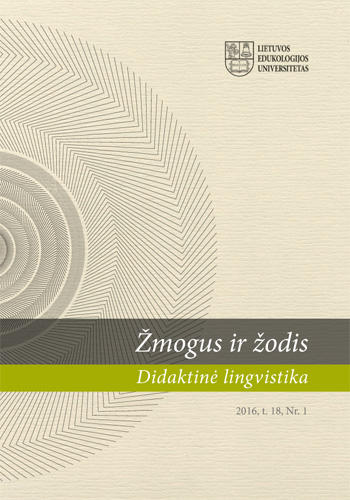Complex sentences and their punctuation in English texts composed by Latvian students
Complex sentences and their punctuation in English texts composed by Latvian students
Author(s): Zigrida VinčelaSubject(s): Language studies, Syntax, Semantics, Comparative Linguistics
Published by: Vytauto Didžiojo Universitetas
Keywords: complex sentence; clause; punctuation; semantic dependency;
Summary/Abstract: Comma use in Latvian and English complex sentences differs significantly and this can cause major problems to Latvian users of English. In particular, the dependent clause that follows the independent clause is normally separated by a comma in Latvian complex sentences (Blinkena, 2009), whereas comma use/non-use in English complex sentences (Downing, Locke, 2006) depends on the semantic relation between the independent and the dependent clause. These comma use differences, as previous research reveals (Farneste, 2006b), can cause challenges in English complex sentence punctuation to students whose native language is Latvian. The goal of this study is to research Latvian students’ punctuation of English complex sentences extracted from a corpus of essays. The analysis covers the cases of nominal and relative dependent clauses that are tightly related to the independent clause they follow. Normally, as Downing and Locke (2006) note, such dependent clauses are not separated by a comma in English texts. The analysis shows that a strong semantic relation between the clauses has been relevantly recognized by students in numerous examples, which they have relevantly punctuated. However, the results also reveal unnecessary separations of relative and nominal clauses from the independent clause by a comma. These findings call for the focusing of students’ attention on the role of the semantic relation of clauses in English complex sentence punctuation by contrasting these sentences with the relevant complex sentences found in Latvian texts. In addition, further analysis of various sentence types and their punctuation in student-composed texts of different communicative purposes is required.
Journal: Žmogus ir žodis
- Issue Year: 18/2016
- Issue No: 1
- Page Range: 96-105
- Page Count: 10
- Language: English

